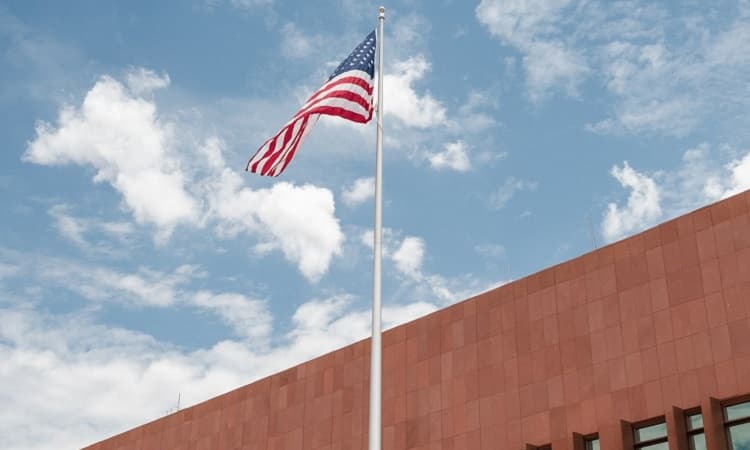We're loading the full news article for you. This includes the article content, images, author information, and related articles.
A partial US government shutdown has left American veterans in limbo, halting critical transition and career support programmes. The ripple effects extend to Kenya, where vital US-funded initiatives and bilateral relations face potential disruption.

The ongoing partial shutdown of the United States government has created uncertainty for thousands of American veterans, particularly those relying on support services for reintegration into civilian life. While essential medical care continues, programmes designed to assist veterans with employment and transition have been suspended, prompting frustration among those affected.
Jonathan Giba, a veteran residing in temporary housing at a US Veterans Affairs (VA) hospital in Martinsburg, West Virginia, expressed his dismay, calling the situation "political bs." Mr. Giba, who has been awaiting medical and dental consultations for three months due to previous medication side effects, now faces further delays. Although the Martinsburg VA Medical Center continues to provide direct medical care, other crucial services, such as job placement and transition assistance, have been halted.
Government shutdowns in the US typically occur when Congress fails to pass appropriation bills to fund federal operations. The current impasse stems from divisions between the Republican and Democratic parties over spending priorities, particularly concerning healthcare funding. Democrats advocate for increased resources for health programmes, while Republicans have raised concerns about providing healthcare to undocumented immigrants.
Historically, such shutdowns have led to significant disruptions, including the furlough of hundreds of thousands of federal employees and the scaling back of various public services. The longest shutdown, from 2018 to 2019, saw nearly 800,000 federal employees without pay for over a month.
The Department of Veterans Affairs (VA) operates under a contingency plan during a shutdown. Due to advance appropriations, approximately 97% of VA employees are expected to continue working, ensuring that core services like medical care, compensation, pension, education, and housing benefits largely remain uninterrupted. VA medical centers, outpatient clinics, and the Veterans Crisis Line continue to operate.
However, non-essential services are suspended. These include transition programme assistance, career counseling, certain VA benefits regional offices, and public affairs outreach. Call centers for GI Bill and National Cemetery Applicant Assistance are also closed.
Veterans like Jonathan Giba are directly impacted by the suspension of transition programmes. The uncertainty and delays in accessing vital support services add to the challenges faced by those transitioning from military to civilian life. Advocacy groups for veterans closely monitor the situation, highlighting the anxiety and stress caused by funding lapses.
The US government shutdown has tangible implications for Kenya, a key strategic partner in East Africa. The US Embassy in Nairobi has already scaled back some operations, including regular updates on its official X (formerly Twitter) account.
More significantly, US-funded programmes in Kenya, covering critical sectors such as health, education, and food security, could face disruption if the shutdown is prolonged. This could affect grants to non-governmental organisations (NGOs) and development partners.
Economically, a prolonged shutdown could weaken investor confidence, potentially leading to reduced investor interest, currency volatility, and delays in trade agreements, including those under the African Growth and Opportunity Act (AGOA). Kenya and the US have a longstanding security partnership, with the US providing equipment and training to Kenyan security forces, and maintaining a military facility at Manda Bay. While direct military aid may not be immediately impacted, a shift in US foreign policy priorities due to internal political issues could have long-term consequences for this cooperation.
The duration of the US government shutdown remains uncertain, making it difficult to fully assess the long-term impact on both American veterans and international partners like Kenya. The political deadlock in Washington over budget allocations continues, with both parties trading blame.
The US government entered a partial shutdown at 12:01 AM on October 1, 2025, East Africa Time (EAT), after Congress failed to pass a temporary funding bill. The Department of Veterans Affairs has enacted its contingency plan to continue essential services.
Observers in Kenya and globally will be closely watching developments in Washington for any signs of a resolution to the budget impasse. The impact on US-funded programmes in Kenya, particularly in health and development, will be a key area of focus. The stability of the Kenyan shilling and investor confidence in the face of global economic uncertainty linked to the shutdown will also be important indicators.
Keep the conversation in one place—threads here stay linked to the story and in the forums.
Sign in to start a discussion
Start a conversation about this story and keep it linked here.
Other hot threads
E-sports and Gaming Community in Kenya
Active 9 months ago
The Role of Technology in Modern Agriculture (AgriTech)
Active 9 months ago
Popular Recreational Activities Across Counties
Active 9 months ago
Investing in Youth Sports Development Programs
Active 9 months ago